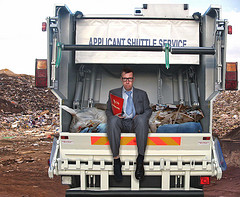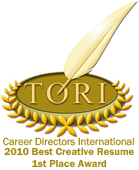Let’s keep you out of the job interview garbage pile.
If your interview preparation consists of reading lists of interview questions and memorizing answers, please read this first.
Now that you know what NOT to do, here are useful questions to ask yourself.
- What are the three top strengths that make me valuable in this position?
- What do I bring to the table that differentiates me from other candidates?
- What problems or challenges can I solve for this company?
Let’s take them one at a time.
- What are the three top strengths that make me valuable in this position?
This is the question the interviewer is actually asking when they say, “Tell me about yourself.” They don’t want your life history, or even your whole work history. They have that on your resume in front of them.
They want you to apply the best of your skills to their company. You may be best in the world at selling ice to Alaskans, but if this company’s market is in Texas, they don’t care. Make it relevant to them. Don’t waste their time or your breath with information that isn’t up to the minute and specific to this company.
- What do I bring to the table that differentiates me from other candidates?
First, find out what other candidates might be offering. Google resumes with the open position title (and related titles). Analyze the job description of the open position. Consider this the minimum standard.
List everything about you that goes above and beyond. Think of examples of each item on your list in preparation for the questions that start, “Tell me about a time when … .”
- What problems or challenges can I solve for this company?
This question is the reason you’re at the interview.
If you don’t know the companies’ problems and challenges, you haven’t done enough homework on the company.
Your interviewer may ask you to perform a task or series of tasks such as an analysis, a report, or another example of the work you would be doing as part of the interview. This is a great way to showcase your talent, but it is not license to engage in “slave labor.”
Before I knew about such rules, I interviewed for a contract job that included brochure design. I created a design for a marketing piece and left it with the interview committee after we met. It was such a hit the organization used it for their next annual campaign – without hiring me.
Likewise, you do not have to plan a departmental reorganization to prove you know what you are doing. You can instead talk about the processes you use in reorgs or about reorgs you’ve completed in the past. You don’t have to give away what you should be paid for.
If your confidence about your upcoming job interview isn’t where you’d like it to be, contact us to talk about what’s going on and what we can do about it. What we do isn’t for everyone, so a 15-minute no-obligation consultation will tell us if we are the right fit to work together on your preparation.
Next time: Some candidates proactively take advantage of the knowledge they gain about the company by preparing a presentation for the interview team.









